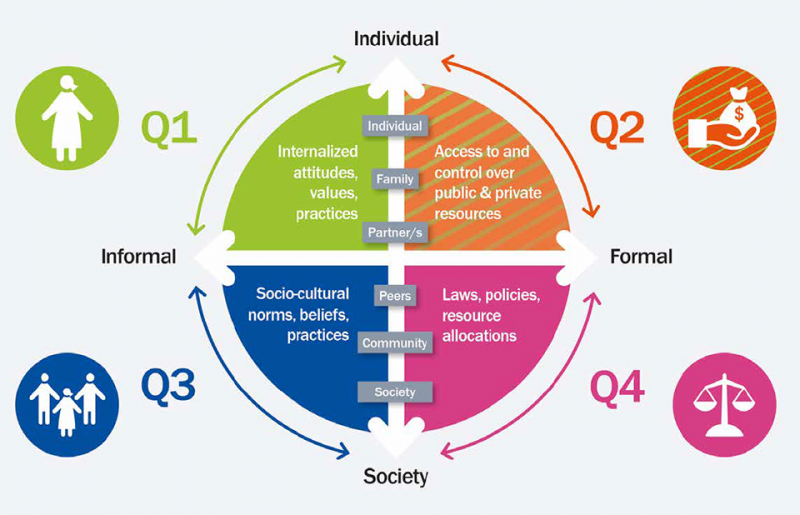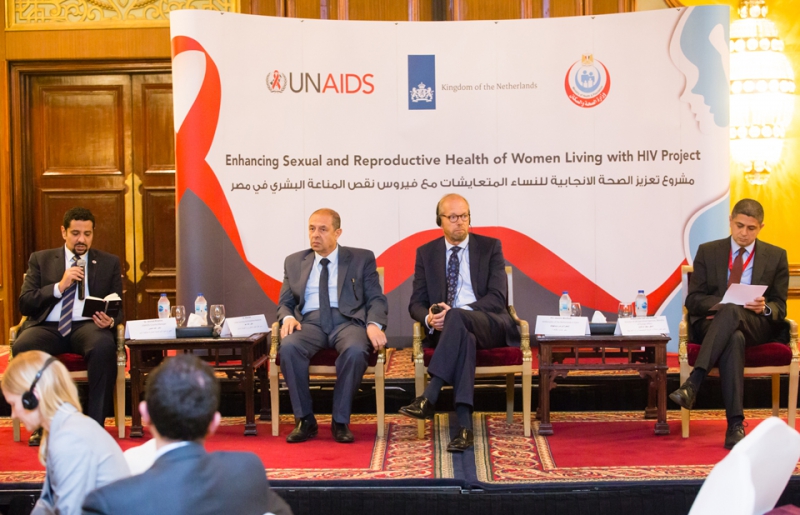According to the World Health Organization, about one third of women worldwide have experienced violence. In some regions, women who have experienced physical or sexual intimate partner violence are 1.5 times more likely to acquire HIV than women who have not experienced such violence. Among marginalized populations, such as sex workers or transgender women, a high prevalence of violence is linked with higher rates of HIV infection.
In the Middle East and North Africa (MENA) region, UNAIDS estimates that around 220 000 people are living with HIV. New infections were up by 12% between 2010 and 2017 and AIDS-related deaths increased by 11% over the same period. The stigma and discrimination associated with HIV as well as high levels of gender-based violence are preventing several countries from making progress against the epidemic. Gender-based violence in the region is strongly associated with harmful gender norms and stereotypes.
In 2018, the LEARN MENA project was launched to provide women with a platform to share experiences and explore the linkages between gender-based violence and HIV in the region. Underpinning the project is the Action Linking Initiatives in Violence against Women and HIV Everywhere (ALIV(H)E) framework, a research project that collates evidence on what works to prevent violence and builds women’s awareness to understand and address linkages between violence against women and HIV.
Through community dialogues led by MENA-Rosa, a regional network of women living with or affected by HIV, women are strengthening their own understanding of the root causes of violence and the links with HIV. The dialogues have highlighted the fact that gender inequality is at the centre of violence against women and an increased risk of HIV infection. For example, through the dialogues it was revealed that some women had never been to school. Many had experienced early or forced marriage. Many women acquire HIV from sexual violence, including within their own marriage.
“Violence is everywhere. Over time, and as you get older, you get to see it as normal,” said an Algerian woman participating in one of the dialogues.
The participants described multiple forms of violence across different settings, including in health-care settings, which impede their access to health care, including to HIV prevention and treatment services.

So far, the project has been implemented in seven countries―Algeria, Egypt, Jordan, Lebanon, Morocco, Sudan and Tunisia.
Findings from the project are helping women living with and affected by HIV to advocate for an improved response to the epidemic in the region and for measures to reduce the impact of violence against women. The dialogues have amplified the voices of marginalized women living with and affected by HIV, encouraging decision-makers and partners to build strengthened national community responses. UNAIDS is supporting countries to implement the recommendations and action plans developed from the project.
“MENA-Rosa leaders have learned through this painful process that violence against us should be denounced and not brushed under the carpet,” said Rita Wahab, Regional Coordinator of MENA-Rosa. “Empowerment will help women in all their diversity to know and understand their rights. Our advocates will move forward to expose the links between violence against women and HIV. Gender equality starts at home, grows in society and blossoms in the legal environment.”
LEARN MENA is implemented by UNAIDS, Frontline AIDS and MENA-Rosa, with funding support from USAID. Additional technical support is provided by the Salamander Trust, the lead author of the ALIV(H)E framework.





